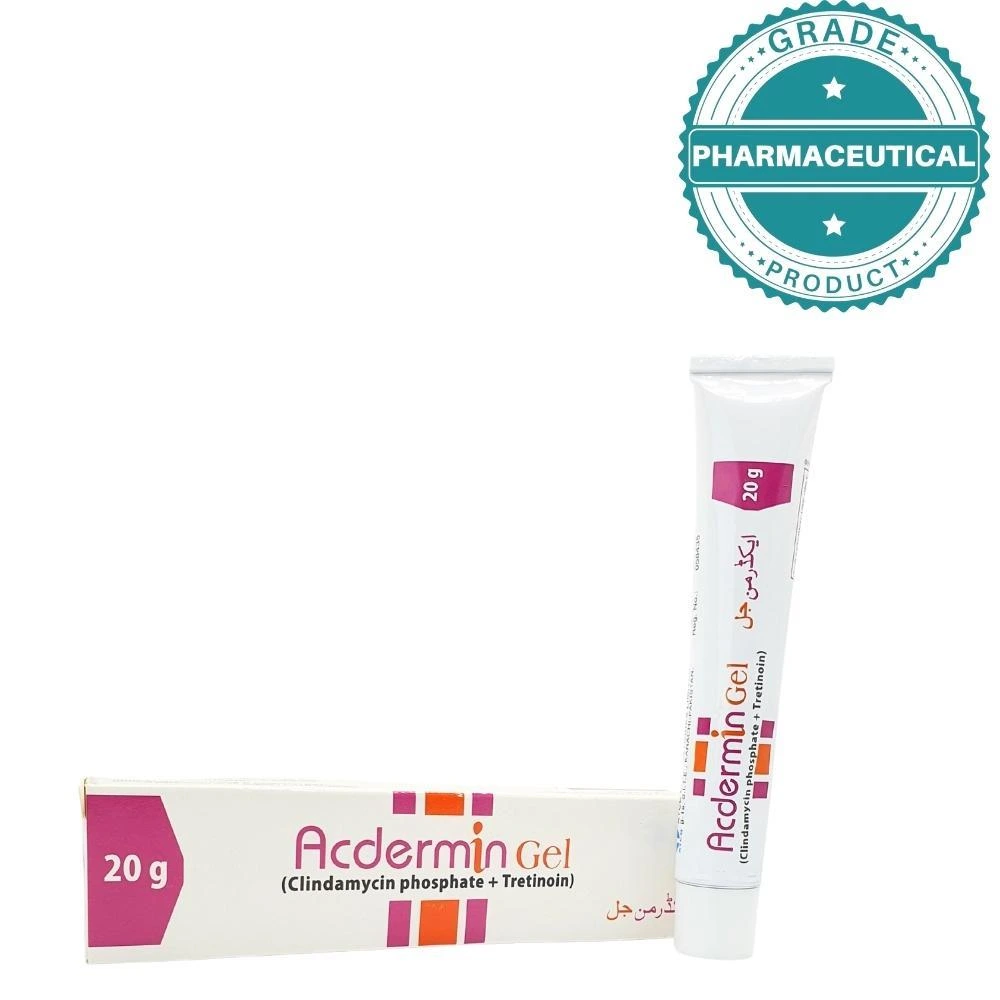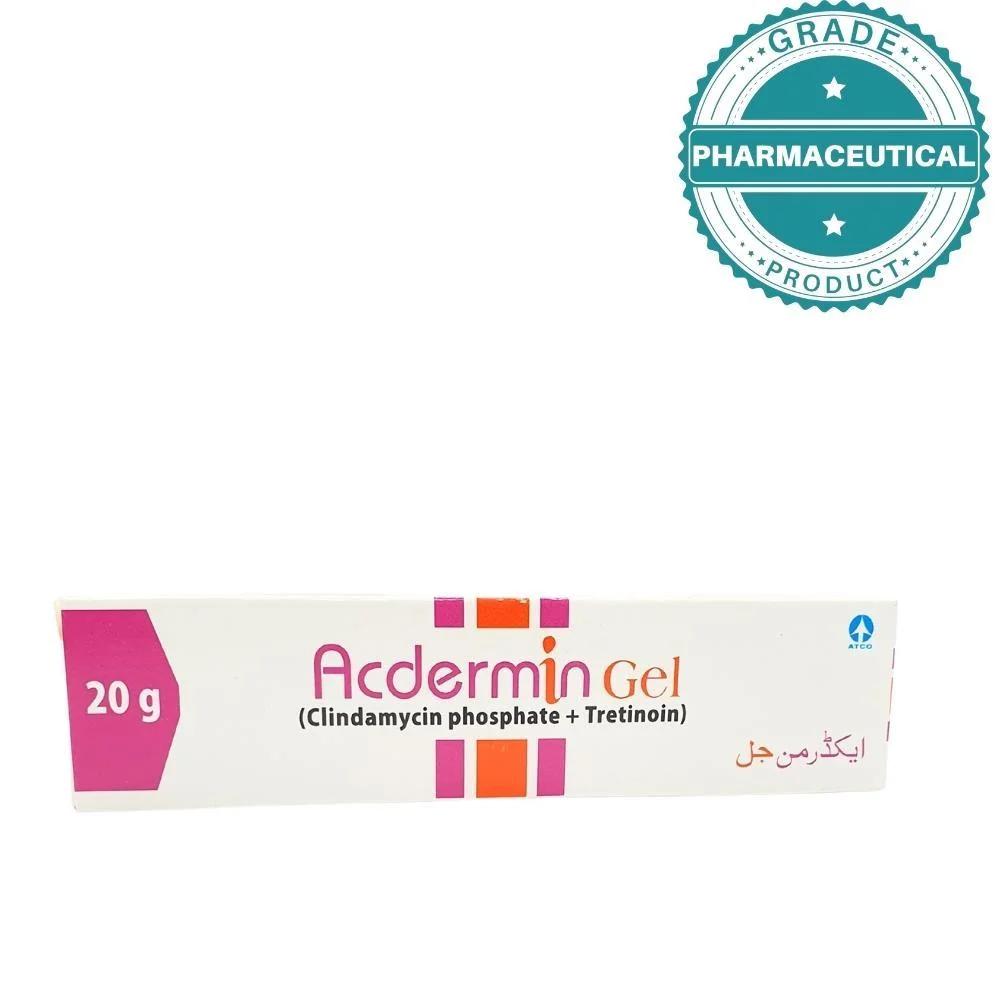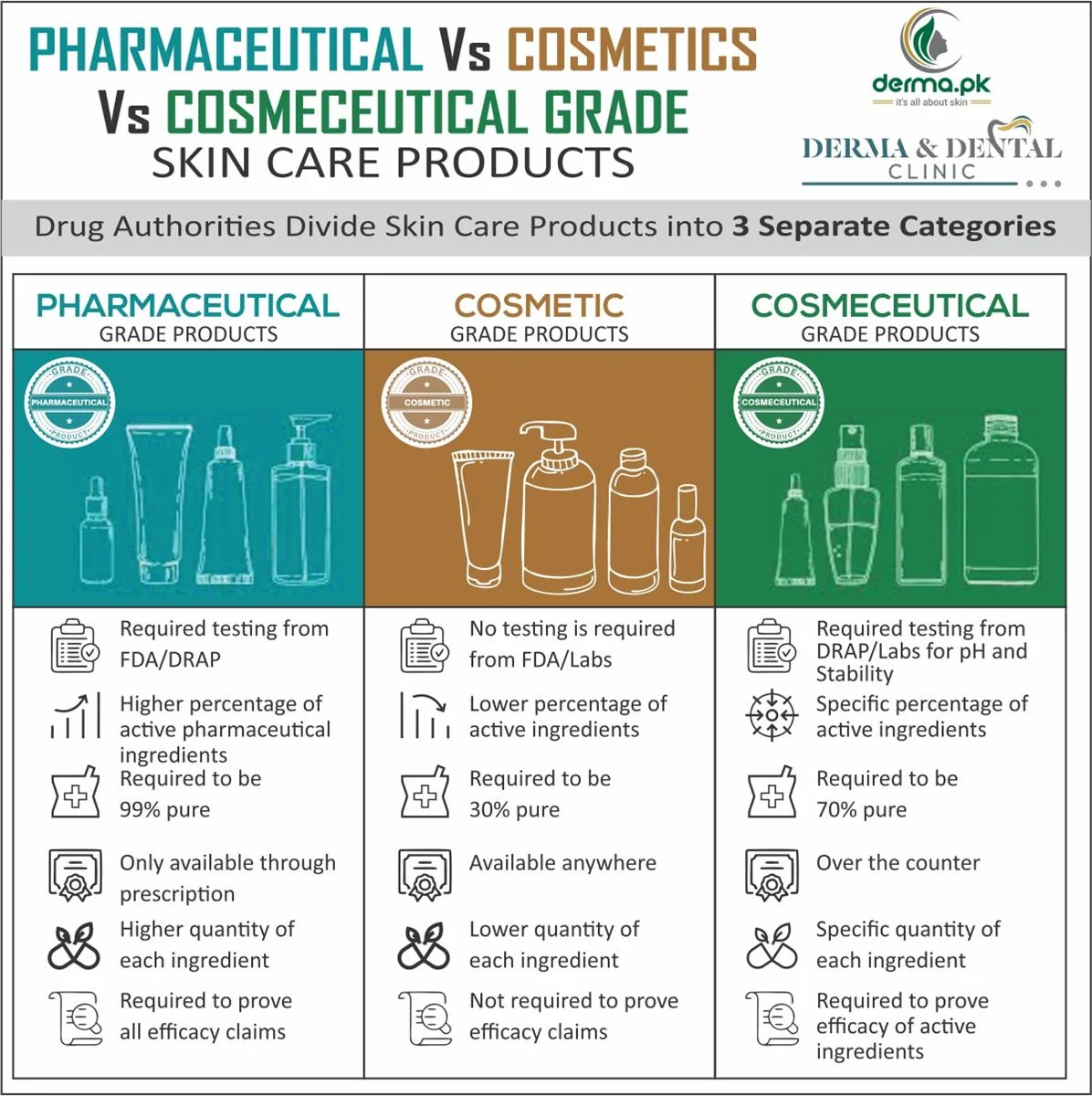ACDERMIN Gel: A Comprehensive Guide to Acne Treatment
Acne vulgaris affects people of all ages, impacting self-esteem and overall well-being significantly. ACDERMIN Gel, a blend of Clindamycin Phosphate and Tretinoin, is a potent remedy for managing this condition. Explore a detailed description of ACDERMIN Gel, covering indications, usage, contraindications, precautions, and more.
Description of ACDERMIN Gel:
ACDERMIN Gel is a topical medication containing Clindamycin Phosphate (1% w/w) and Tretinoin (0.025% w/w). Combining the properties of an lincosamide antibiotic and a retinoid, it treats acne as a topical gel.
Indications and Usage:
Specifically indicated for treating acne vulgaris in patients aged 12 years and older, this skin condition presents as pimples, blackheads, and whiteheads due to hair follicle blockage.
Dosage and Administration:
For optimal effectiveness, apply ACDERMIN Gel at bedtime. Follow these steps:
- Gently wash your face with mild soap and warm water.
- Pat your skin dry.
- Squeeze a peasized amount onto your fingertip.
- Apply the gel to the chin, cheeks, nose, and forehead.
- Gently rub it over your entire face. Crucially, avoid contact with the eyes, mouth, nose angles, and mucous membranes. It’s not intended for oral, ophthalmic, or intravaginal use.
Dosage Forms and Strengths:
Available as a topical gel with Clindamycin Phosphate 1% w/w and Tretinoin 0.025% w/w, it effectively addresses acne factors.
Contraindications:
While effective for treating acne, ACDERMIN Gel isn’t suitable for everyone. Avoid it if you have regional enteritis, ulcerative colitis, or a history of antibiotic-associated colitis. Seek alternative treatments in these cases.
Warnings and Precautions:
- Colitis risk: Systemic absorption of clindamycin through topical use may lead to conditions like diarrhea, bloody diarrhea, and colitis. Discontinue use if significant diarrhea occurs.
- UV Exposure: Protect your skin from sunlight and sunlamps while using ACDERMIN Gel to prevent sunburn. Daily use of sunscreen and protective clothing is advisable.
- Weather Extremes: Exercise caution in extreme weather conditions like wind or cold, which can irritate the skin.
Drug Interactions:
- Concomitant Topical Medication: Be cautious with strong-drying, high-alcohol content, or astringent medications, soaps, or cosmetics when using ACDERMIN Gel to prevent increased skin irritation.
- Erythromycin: Avoid combining ACDERMIN with erythromycin-containing products due to clindamycin’s antagonistic effects.
- Neuromuscular Blocking Agents: Consider the interaction of clindamycin, which has neuromuscular blocking properties, with other agents.
Use in Specific Populations:
- Pregnancy: Consider using This Gel during pregnancy only if its potential benefits outweigh the risks.
- Nonclinical Toxicology: Carcinogenicity, mutagenicity, and fertility impairment studies for ACDERMIN Gel haven’t been conducted.
Storage and Handling:
Stored in a 20gram collapsible tube, ACDERMIN should be kept away from children and protected from light, heat, and freezing. Store below 30°C.
Patient Information:
Not for use in the mouth, eyes, or vaginal areas. Pregnant, breastfeeding, or using other medications? Consult your healthcare provider for safe and effective use.
In conclusion, ACDERMIN is a potent acne treatment combining Clindamycin Phosphate and Tretinoin. Adhere to prescribed use and be aware of potential interactions and contraindications. Proper use can lead to clearer and healthier skin for those dealing with acne.











Ruby –
Excellent service, fast delivery, and genuine medications. Highly recommend!
Mubarik –
Always reliable and on time.
Saima –
Pharmacist is very cooperative